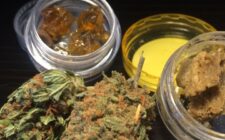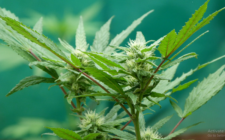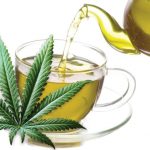Medical cannabis is now available in thirty-six states and the District of Columbia. More than a dozen states have completely decriminalized marijuana, opening the door to recreational use. New York and Vermont are two of the more recent states to join the decriminalized camp. But wait. There is a problem. The interests of the medical and recreational communities are not necessarily the same.
It would seem that completely decriminalizing marijuana would eliminate the need for medical programs. For example, Utah is one state that allows medical use but not recreational use. Their medical program is one of the strictest in the country. It has to be.
On the other hand, Vermont is now trying to balance the needs of medical marijuana users against the desires of recreational users. Doing so is proving more difficult than anticipated. For medical marijuana users, the issue is one of quality and safety. Indeed, that is where medical and recreational cannabis collide.
Who Controls the Markets
Medical cannabis in Utah is under the control of the state health department. Health department officials work with appointed bureaucrats to create and maintain the rules that control Utah’s program. According to the folks at Park City’s cannabis dispensary, Deseret Wellness, the state tightly controls everything from who grows cannabis plants to which doctors can recommend cannabis as a medicine.
In Vermont, who controls the markets is not as clear. Prior to the passage of Act 164 in 2020, medical cannabis in Vermont was the domain of the state Department of Public Safety. But now that Vermont has completely decriminalized marijuana, control is being handed over to the newly formed Cannabis Control Board.
Vermont lawmakers have determined that the board must be comprised of twelve members with some sort of expertise in the marijuana realm. Medical users are concerned because none of the members bring a medical perspective to the table. They feel that their voice will not be heard when it comes time for the board to make decisions.
Medical Grade Cannabis
Medical cannabis users in Vermont, and other states as well, are concerned about the quality of the products they have access to. In tightly controlled states like Utah, the medical cannabis industry has a vested interest in quality and safety. And in fact, Utah growers and processors are actively pursuing medical-grade cannabis products.
Growers and processors in decriminalized states may finally have little incentive to invest heavily in the medical market. As the thinking goes, decriminalization all but eliminates the medical market. But medical users do not agree. Many of them cannot use just any old product purchased off the street. And unless their states mandate some sort of standard for medical-grade product, medical users may be left out in the cold.
Marijuana Is a Unique Product
The collision between medical and recreational use is the result of marijuana being a unique product. Let’s face it, people have no recreational use for something like ibuprofen. Companies that make ibuprofen must invest in making the best possible product for medical applications.
Alcohol is similar on the other end of the scale. Very few people use it for medicinal purposes. As such, producers only have to worry about the recreational market. Cannabis covers both markets. On the one hand are medical users who rely on it to provide symptom relief. On the other hand are recreational users whose consumption has nothing to do with health.
States like Vermont are discovering that decriminalization not only solves some problems, but it also introduces some new ones too. Maintaining quality and safety for medical users is among them.










